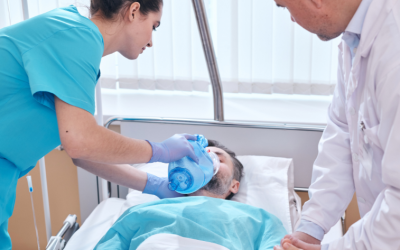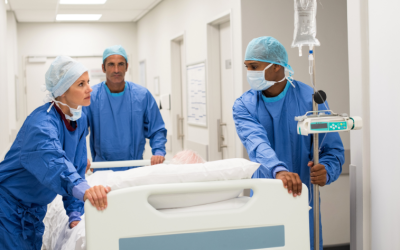An anterior cruciate ligament (ACL) tear is one of the most challenging injuries for football players. This ligament in the knee plays a crucial role in stabilizing the joint, and tearing it can severely limit an athlete’s ability to perform. At Tennessee Orthopedic Alliance, we understand how important it is for athletes to get back on the field as soon—and safely—as possible. A structured recovery plan is essential for returning to play after an ACL tear.
The Importance of Early Intervention
After sustaining an ACL tear, seeking medical attention is critical. Early intervention helps reduce swelling and inflammation, which can interfere with the healing process. At this stage, your orthopedic specialist will likely recommend rest, ice, compression, and elevation (the RICE protocol) to control pain and swelling. Depending on the severity of the tear, surgery may be required to repair or reconstruct the ligament.
Physical therapy may begin even before surgery to strengthen the surrounding muscles and improve knee mobility. This “prehabilitation” helps set the foundation for a smoother recovery by preparing the body for rehabilitation following surgery.
The Post-Surgery Recovery Process
If surgery is required, the recovery process will begin almost immediately after the procedure. In the early stages, the focus is on managing pain, reducing swelling, and protecting the knee for proper healing. Using a knee brace and crutches during this period helps stabilize the joint and prevent unnecessary strain on the ligament.
Physical therapy begins as soon as possible, often within a few days of surgery. The initial goals of therapy are to regain full extension of the knee and gradually improve flexibility. Stretching exercises and gentle movements will help prevent stiffness and scar tissue formation. Although it can be a slow and challenging process, early therapy is essential for long-term success.
Building Strength and Mobility
As the healing process progresses, the focus of recovery shifts to rebuilding strength and mobility in the knee. Football players must regain the strength of their quadriceps, hamstrings, and surrounding muscles to support the injured knee. Physical therapy sessions will incorporate exercises that target these muscles, gradually increasing in intensity as strength returns.
Balance and stability training also play a key role in recovery. Football requires sudden changes in direction, jumping, and pivoting—all of which stress the knee. Training these movements in a controlled environment during rehabilitation helps ensure the knee is prepared to handle the demands of the sport. Your physical therapist will guide you through exercises that mimic the football movements, preparing you for a safe return to the field.
Reintroducing Football-Specific Activities
Football-specific training becomes more important as you approach the later stages of recovery. This phase focuses on getting your body ready for the intensity of football by gradually incorporating activities such as running, cutting, and lateral movements. Return-to-play drills allow you to regain confidence in your knee while improving agility and coordination.
Your medical team will monitor your progress closely, adjusting the recovery plan as needed. This phase can be advantageous, as it allows you to see real improvements in strength and function. However, patience is vital, as rushing back to total activity too soon can increase re-injury risk.
Preparing for a Safe Return to the Field
Once your knee has regained strength and mobility and you have completed football-specific training, your healthcare team will assess your readiness to return to play. This evaluation typically includes a series of functional tests to ensure the knee can handle the physical demands of football without compromising stability.
Returning to the field after an ACL tear is a significant milestone, but it’s important to continue following the guidance of your medical team to prevent future injuries. Ongoing strength training, flexibility exercises, and a proper warm-up routine can help protect your knee and ensure you stay healthy throughout the season.
ACL Repair at Tennessee Orthopedic Alliance
Recovering from an ACL tear requires time, patience, and dedication. Following a step-by-step recovery plan tailored to your needs, you can safely return to football and continue pursuing your passion for the game. At Tennessee Orthopedic Alliance, our team is here to support you every step of the way, providing expert care and guidance to help you get back to playing at your best.




